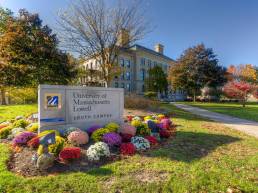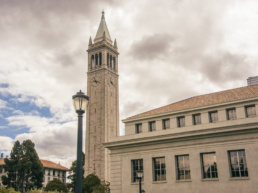FLAD will fund with 111 thousand euros four projects of Portuguese Higher Education Institutions (HEIs) that aim to develop partnerships for their internationalization, in partnership with universities in the United States. This support will be granted under the UP – Higher Education Program, created by FLAD to promote and encourage the internationalization of Portuguese Higher Education Institutions.
In this edition of UP, the jury selected four internationalization projects of Portuguese HEIs that demonstrate a commitment to promoting deeper institutional ties between institutions in Portugal and the United States, and with the internationalization of their institutions. The distinguished institutions are Iscte – School of Applied Digital Technologies, the University of Porto – Faculty of Sciences, the University of Coimbra – Faculty of Science and Technology and the University of Lisbon – Institute of Social Sciences , which will develop several projects in partnership with American universities.
Learn more about the projects below:
“Atlantic Crossing – Crossing the Atlantic for Scientific and Teaching-Learning Cooperation”
The project represents a collaboration between the School of Applied Digital Technologies of Iscte – Instituto Universitário de Lisboa and Bridgewater State University. The main objective is to develop joint specializations, postgraduate programs and the award of joint academic degrees in the near future in scientific areas of mutual interest, such as Cybersecurity, Artificial Intelligence and Language Technologies, Business Innovation and Teaching-Learning. Through collaboration, both institutions will be able to build on each other’s strengths and resources, improving the quality of teaching and research. The proposal also aims to develop skills for teachers and students through the Collaborative Online International Learning (COIL), applied in Curricular Units of undergraduate courses at both universities, focusing on the scientific areas mentioned above.
“Biodiversity, landscape planning, sustainable use of natural resources and agroecology”
The project is the result of a collaboration between CIBIO-BIOPOLIS – Research Center in Biodiversity and Genetic Resources EBM (Mértola Biological Station) of the Faculty of Sciences of the University of Porto and Cornell University. Its main objectives are biodiversity research, landscape planning, the sustainable use of natural resources and the training and mobility of students, teachers and researchers, including the promotion of a sabbatical leave program. This partnership also aims to promote cooperation between the Cornell University Museum of Vertebrate, the University of Porto and the Mértola Biological Station.
“‘(A D)eriv(A): Architecture, Design & Arts Festival”
The main objective of the (D)eriv(A) Architecture, Design and Arts Festival is to establish an interdisciplinary partnership between the Department of Architecture of the University of Coimbra and the Pratt Institute, in New York. It aims to build mutual knowledge and create synergies to think about sustainable and more inclusive solutions for the territory, with the territory and in the territory, through design as a research tool. This collaborative experience in the municipality of Penacova, Coimbra, also aims to raise public awareness for a better understanding of the impact of good design on daily life and collective well-being, involving local communities in participatory decision-making and self-construction processes.
“Politics of Public Memory: Inconvenient History, National Identity, and Social Justice in Portugal and the US”
This project is developed by the Institute of Social Sciences (ICS) and the Museum of Natural History and Science of the University of Lisbon (MUHNAC), in partnership with GeorgeWashington University (GWU), the Slave Wrecks Project (SWP) and the Smithsonian-National Museum of African American History and Culture (SI-NMAAHC). The central component of this project involves comparative and interdisciplinary research on how public memory narratives of “hard history” are being reproduced and discussed in Lisbon and Washington DC. This ethnographic approach will be crucial to understanding how these two institutions (and some of their partners) have dealt with this difficult history, while challenging public narratives of erasure of African heritage in both countries. The operational results of this research in the educational field include two main actions. On the one hand, it will seek to provide museum teachers and educators with the pedagogical skills and resources needed to teach and talk about slavery and other difficult histories. On the other hand, it will include the creation and offer of two university courses for American students in mobility in Portugal and Portuguese.
FLAD will distribute 111 thousand euros to the four projects for the implementation and development of the planned initiatives.
Many congratulations to all and good work!
Related Posts
March 25, 2025
Note of Condolence – Charles Buchanan (1934-2025)
March 24, 2025
Applications Open: FLAD/Saab Visiting Professor at UMass Lowell 2026
Portuguese professors can apply to…
March 17, 2025
FCT and FLAD sign new protocols with the University of California
The objective is to promote academic…


